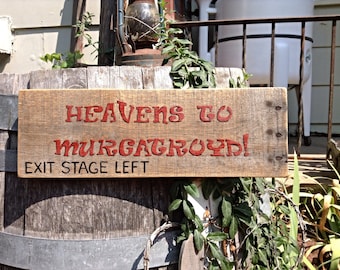I am not really eavesdropping, but in the seating section
next to me I can hear three women talking. They appear to be mother, daughter,
and granddaughter and I gather that they are here because the father has
fallen. The older woman seems calm enough, but I recognize the clenched fists
of the carefully controlled anguish. I am thinking of approaching the group
when the two younger women hug the older one and depart on errands. The one
left sits and looks dejectedly around the room. I make eye contact with her. I
smile.
Up until fifteen years ago, I thought of myself as a shy
person. But hospital waiting rooms can change one’s character and today I think
nothing of rising from my seat and introducing myself to this fellow waiter.
“You can tell me to go away if you want, “ I say, “and I
will go back to my seat”—I gesture at the chair where my go-bag sits—“but I
overheard a little of your conversation and it seems that you and are on
similar journeys tonight. Perhaps we could sit together and talk while we
wait.” The woman smiles and says, “Of course.”
 So I sit, and we talk. My new companion, Phyllis, has been
taking care of her husband for 27 years now. I gasp when she says it. “I hoped
it would end sometime,” I say. “It’s been fifteen years for us.” She gives me a
sad smile and pats my hand. “It never ends, dear.”
So I sit, and we talk. My new companion, Phyllis, has been
taking care of her husband for 27 years now. I gasp when she says it. “I hoped
it would end sometime,” I say. “It’s been fifteen years for us.” She gives me a
sad smile and pats my hand. “It never ends, dear.”
Frank, her husband, has had several heart attacks and is in
the early stages of dementia. He fell today and since he has multiple problems,
she called 911 and had him brought in. I tell her about Ron’s ages ago car
accident and the events with heart and medications and depression that brought
us to the ER this evening. She is sympathetic and empathizes; we well spouses
understand each other.
“If this is all so difficult,” I venture, “and there is no
end in sight, why do we stay?”
She looks down for a moment and twists her wedding ring. “We
stay,” she says, “because the vows meant something to us. We stay because we
remember what they were and what we hope they will be again.”
There it is once more, that word “hope”, the tenacious word
that often keeps me hanging onto the branch of the wind-torn tree. My companion and I speak of our faith in God,
of the support of our respective churches, of the energy required—and supplied
by our maker—to continue to be care-givers to our husbands.
My daughter and hers enter the room almost simultaneously
and Phyllis and I move to our respective family groups. Now and then, we look
up and catch each other’s eye. Phyllis’ family is called to go back first and
before she moves through the metal detector, I give her an impulsive hug. “Good
luck,” I say. “I will pray for you.”
She squeezes me back. “And I you,” she says.
It will be another hour before our family name is called,
and even more time will elapse before we find that Ron has overdosed on his
heart medications, that his urinary tract infection has altered his sense of
right, that his pacemaker has kept him alive. Bonnie and I talk and make phone
calls and send texts and pray.
I pray for Phyllis,
fellow care-giver and well-spouse.
And I twist my own wedding ring on my hand, a ring that has seen
more worse than better, more downs than ups, more poorer than richer. But the
vows, as Phyllis has so astutely pointed out, mean something. For now, I stay.


